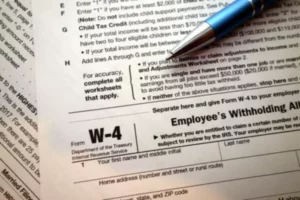Here are relief options of CARES Act (S. 3548) that businesses can apply for right now.
With the global pandemic wreaking havoc on the economy, few businesses are unaffected or will remain so. And as is generally the case in downturns, it is the small businesses that feel the pinch the most. The relief package that was just signed into law offers some help to qualifying businesses, though navigating all the options available is no easy task. We broke down the relevant components of the bill in an attempt to make it easier for small businesses to find the help they need. For most of these programs, you’ll need to have payroll records, business sales receipts, financial statements, and other documentation. If you need help combing through your books, we offer a free consultation. Book yours today>>
Small business help
The CARES Act includes a $350 billion loan program for sole proprietors, independent contractors, self-employed individuals, nonprofits and businesses with fewer than 500 employees. This program will be facilitated through the SBA (Small Business Administration). To get one of these SBA loans a business must meet certain requirements, depending on which of the options you’re applying for.
One of the most notable provisions is the Paycheck Protection Program. The Paycheck Protection Program offers a low-interest loan of up to $10 million dollars to qualifying businesses that is designed to fund payroll and certain other expenses incurred between February 15th and June 30th.
All the money that is paid towards qualifying expenses will be forgiven, so the Paycheck Protection small business loan will essentially turn into a grant, or at least parts of it can, so long as you properly document where the money is spent.
(CTA: Schedule your Free Consultation with a Small Business Bookkeeping Advisor here)
Qualifying expenses for which the funds will not need to be repaid:
- The portion used to cover payroll costs (excluding wages over $100,000).
- Rent, utilities, and mortgage interest — over an eight-week period.
It is expected that businesses benefiting from these low-interest loans do NOT lay off any workers or reduce their employees’ compensation. For those who do, the amount of forgivable debt will change in proportion to the changes they make to the number of employees on their payroll or any changes in the salaries.
Economic Injury Disaster Loan (EIDL).
Another option is the EIDL loan. These loans can be taken out to cover operating expenses, current debt obligations and more. There are also Emergency EIDL Grants of $10,000 that you can apply for with this type of loan. When you apply for an EIDL, you can request an advance on the loan of up to $10,000. The government has indicated that they will pay these advances within 3 business days – though it will likely take at least a week, or even longer. They may pay this advance before your EIDL application is even reviewed. Best of all, you don’t have to pay this advance back — even if your EIDL application is denied! Since you won’t have to pay it back, the advance it’s effectively a grant. The terms of the EIDL are 30 years, and while the interest is higher than the 1% you get with the Paycheck Protection Program, this may still be a better option for businesses who need to cover operational expenses more than payroll.
Employee Retention Tax Credit
Alternatively, your business may choose to opt for the retention credit. Please note that this credit is NOT available to those who apply for the Paycheck Protection Program.
This credit applies to taxes on wages paid between Mar. 13 and Dec. 31 2020, and is equal to 50% of qualifying wages of up to $10,000 per worker.
The credit can be claimed against quarterly payroll taxes. The Treasury can make advance payments of the tax credit, and waive penalties for employers who don’t pay applicable payroll taxes in anticipation of receiving the credit.
Deferral of Taxes
The CARES Act also allows small businesses to defer their portion of the Social Security payroll tax — a 6.2% rate in 2020.
Deferral does not mean that you won’t pay this tax. It simply means that if your business is struggling, you can get an extension on when that bill will have to be paid.
There are additional provisions in the CARES Act that should all be carefully evaluated by business owners and their accountants and bookkeepers. All of the SBA loans are provided on a first-come, first-served basis, so the sooner you fill out your application, the better your chances of getting your loan or grant approved. We are working around the clock to assist our small business clients with preparing their financial statements and payroll taxes to help them qualify for these federal benefits. For current BooksTime clients, chances are we can help you without any fees involved. For those who are not currently clients, we have drastically reduced our rates for the duration of this crisis and are ready to help.
The original CARES Act is almost 900 pages, so by necessity, we’re summarizing things in a highly simplified and incomplete way here. This article was not written by nor reviewed by a lawyer or a CPA. It is not intended or written to be used as, and cannot be used as legal, tax, investment or financial advice. Any advice or information contained in this article was not intended or written to be used for, and cannot be used for the purpose of avoiding penalties that may be imposed under the Internal Revenue Code or applicable state or local tax law provisions.

















